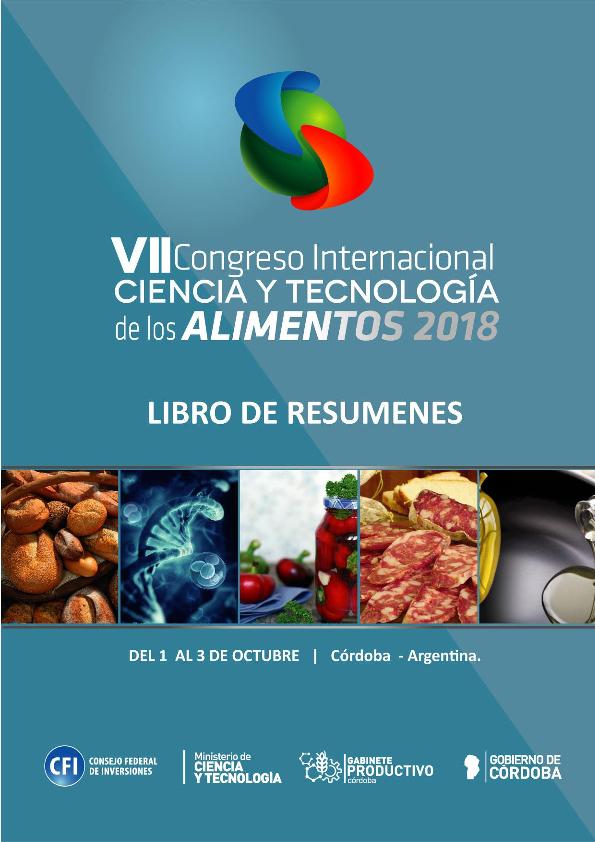Mostrar el registro sencillo del ítem
dc.contributor.author
Dentice Maidana, Stefania

dc.contributor.author
Ganzle, Michael
dc.contributor.author
Vignolo, Graciela Margarita

dc.contributor.author
Savoy, Graciela

dc.date.available
2022-10-20T14:13:39Z
dc.date.issued
2018
dc.identifier.citation
Development and sensory evaluation of a potential gluten free bread using chia sourdough; VII Congreso Internacional Ciencia y Tecnología de los Alimentos; Córdoba; Argentina; 2018; 1081-1081
dc.identifier.isbn
978-987-45380-9-3
dc.identifier.uri
http://hdl.handle.net/11336/174149
dc.description.abstract
Generation of novel functional foods are essential for agriculture industry. Sourdough technology is widely used in bread making (leavening properties) and is mainly represented by lactic acid bacteria (LAB) and yeast, whose fermentation confers to the resulting bread its characteristic features such as palatability and high sensory quality. Chia seeds are widely consumed for various health and nutritional benefits, their gluten free properties are essential for celiac patient and in gluten intolerant diet. However, the production of a gluten free bread is a challenge due its low quality and for exhibit poor mouth feel and flavor. Food industry try to replace absence of gluten mainly with starch, protein based ingredients and hydrocolloids in order to mimic the viscoelastic properties of gluten. Fermentation of Chia with starter culture, releases aminoacids and water-soluble polysaccharides that could improve nutritional sensory and technologically food products. Sensory evaluation of Weisella cibaria C-2 inoculated in chia sourdough breads compared with its unfermented and the reference, was conducted by 56 people recruited from the University of Alberta campus. Demographic showed a 44% of population studied consume bread 2-3 times a week, 47% like bread and a 26% consider bread as a favorite bakery product. A 9-point hedonic scale where used to classified different samples. Overall, participants moderately disliked the reference and its texture. Its taste was only slightly disliked. Consumers slightly disliked the 20% sourdough’s taste, texture and the bread overall. The 30 and 40% breads scored the highest, with all categories falling into neither like or dislike. A duo trio test was performed in which 70% of participants could tell that the samples were not the same (p≤ 0.005). Therefore, using fermented versus unfermented chia seed caused differences in sensory qualities. All these data are essential for targeted development of specific functional food products in future projects.
dc.format
application/pdf
dc.language.iso
eng
dc.publisher
Gobierno de la Provincia de Córdoba. Ministerio de Ciencia y Tecnología
dc.rights
info:eu-repo/semantics/openAccess
dc.rights.uri
https://creativecommons.org/licenses/by-nc-sa/2.5/ar/
dc.subject
CHIA SOURDOUGH
dc.subject
SENSORY PANEL
dc.subject
GLUTEN-FREE BREAD
dc.subject
LACTIC ACID BACTERIA
dc.subject
FERMENTATION
dc.subject
CHIA SEED
dc.subject.classification
Biología Celular, Microbiología

dc.subject.classification
Ciencias Biológicas

dc.subject.classification
CIENCIAS NATURALES Y EXACTAS

dc.title
Development and sensory evaluation of a potential gluten free bread using chia sourdough
dc.type
info:eu-repo/semantics/publishedVersion
dc.type
info:eu-repo/semantics/conferenceObject
dc.type
info:ar-repo/semantics/documento de conferencia
dc.date.updated
2022-08-24T19:19:19Z
dc.journal.pagination
1081-1081
dc.journal.pais
Argentina

dc.journal.ciudad
Córdoba
dc.description.fil
Fil: Dentice Maidana, Stefania. Consejo Nacional de Investigaciones Científicas y Técnicas. Centro Científico Tecnológico Conicet - Tucumán. Centro de Referencia para Lactobacilos; Argentina
dc.description.fil
Fil: Ganzle, Michael. University of Alberta; Canadá
dc.description.fil
Fil: Vignolo, Graciela Margarita. Consejo Nacional de Investigaciones Científicas y Técnicas. Centro Científico Tecnológico Conicet - Tucumán. Centro de Referencia para Lactobacilos; Argentina
dc.description.fil
Fil: Savoy, Graciela. Consejo Nacional de Investigaciones Científicas y Técnicas. Centro Científico Tecnológico Conicet - Tucumán. Centro de Referencia para Lactobacilos; Argentina
dc.relation.alternativeid
info:eu-repo/semantics/altIdentifier/url/https://cicytac.cba.gov.ar/wp-content/uploads/2018/12/Libro-de-Res%C3%BAmenes-VII-CICYTAC-2018.pdf
dc.conicet.rol
Autor

dc.conicet.rol
Autor

dc.conicet.rol
Autor

dc.conicet.rol
Autor

dc.conicet.nroedicion
1a especial
dc.coverage
Internacional
dc.type.subtype
Congreso
dc.description.nombreEvento
VII Congreso Internacional Ciencia y Tecnología de los Alimentos
dc.date.evento
2018-10-01
dc.description.ciudadEvento
Córdoba
dc.description.paisEvento
Argentina

dc.type.publicacion
Book
dc.description.institucionOrganizadora
Gobierno de la Provincia de Córdoba. Ministerio de Ciencia y Tecnología
dc.source.libro
VII Congreso Internacional Ciencia y Tecnología de los Alimentos: Libro de Resúmenes
dc.date.eventoHasta
2018-10-03
dc.type
Congreso
Archivos asociados
